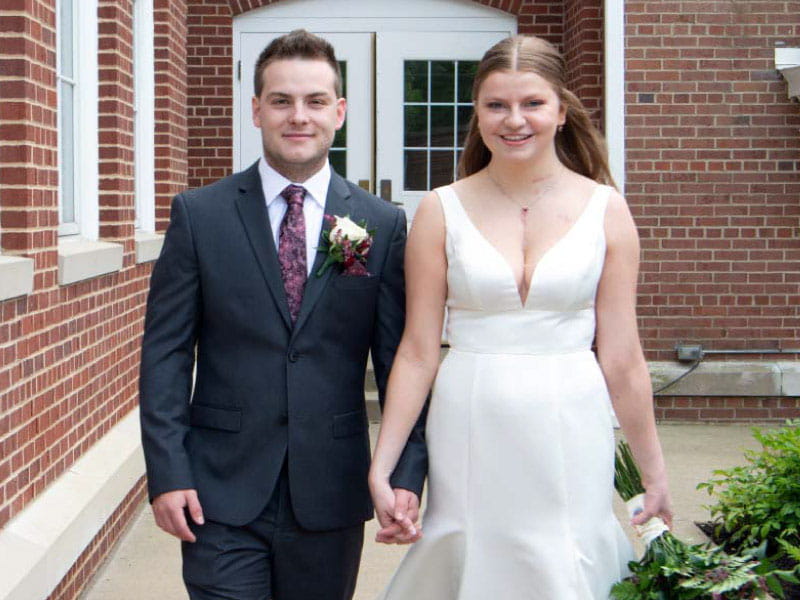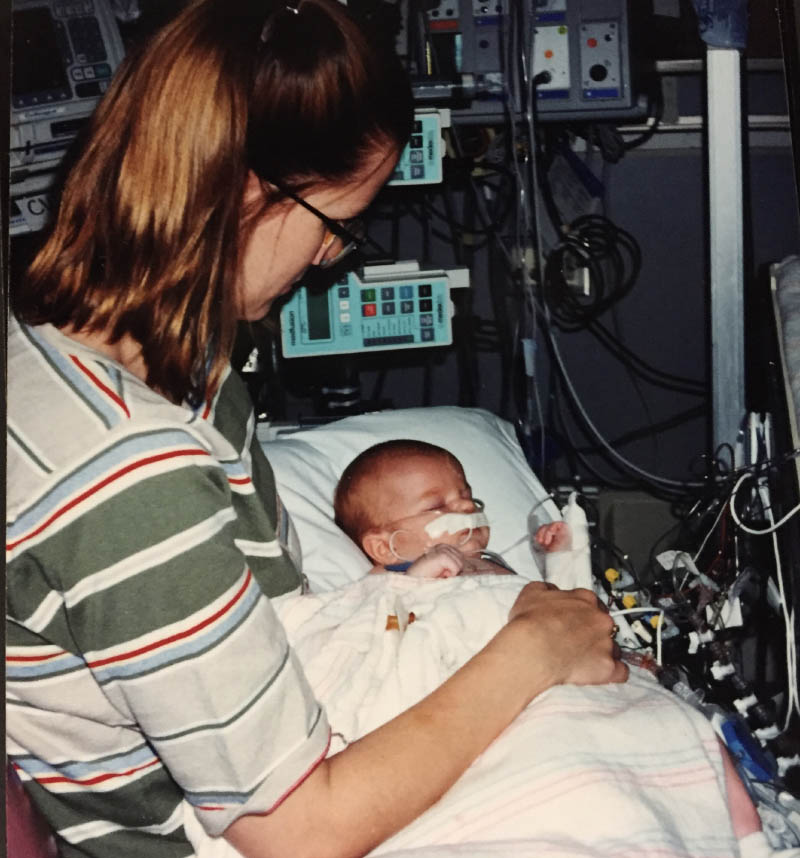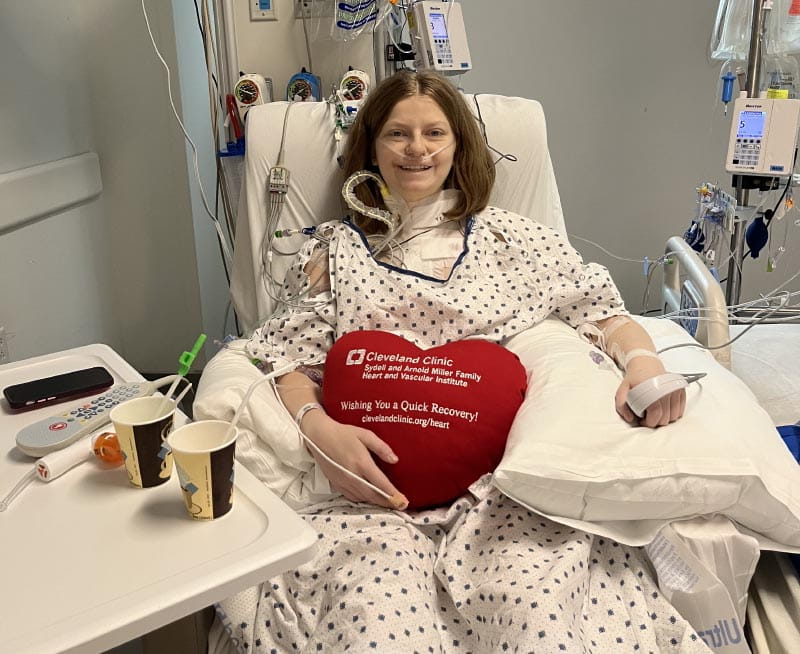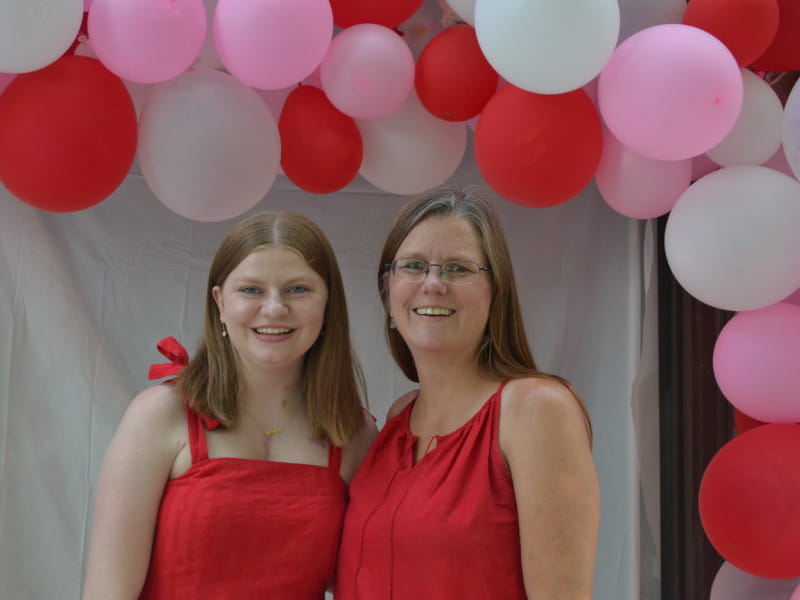Within roughly a year, she got a college degree, a new heart and a husband
By Diane Daniel, American Heart Association News

While the other kids went out to play during kindergarten recess, Katherine Herrmann had to stay inside.
She was born with a heart problem that required her to take medications every day. Because blood thinners were among her pills, she couldn't risk getting hurt and bleeding.
Katherine was an infant when her mother noticed that she was struggling to breathe. She was diagnosed with Shone's complex, a rare congenital heart condition marked by at least two defects that affect blood flow in the left side of the heart.
Within a few weeks, doctors performed open-heart surgery to replace Katherine's valves.
By her first birthday, the girl from Canton, Ohio, had undergone seven surgeries.

As she grew older, Katherine found activities that were deemed safe and that she enjoyed, such as dance, drama and choir. She also got involved in elementary school fundraisers for the American Heart Association. She liked to share her story because it could help people.
At 10, she began seeing a therapist to talk about life as a heart patient. There, Katherine learned to describe her feelings and to find joy wherever she could.
Soon, she found plenty of opportunities for that.
At 13, she combined her love of performance and conversation by starting her own YouTube channel. Sometimes she'd talk about her medical procedures, but usually she'd make rainbow looms and bracelets, muse on daily life and answer readers' mail. (She had her own post office box.) She even earned a little money from it.
At 14, her replacement heart valves wore out. She needed yet another replacement.
Her parents had been dreading it. But Katherine turned it into a show of strength.
She not only danced defiantly into the operating room, she did so to the song "Pumpin Blood." Doctors and nurses got into it, too, pumping their fists to the lyrics, "It's your heart, it's alive. It's pumping blood. And the whole wide world is whistling."
The operation itself was a success. And having two new healthy valves transformed Katherine. She felt more energetic than ever. She enjoyed a growth spurt, shooting up 4 inches.
But her energy began heading in the wrong direction her senior year of high school. By December of her freshman year of college, she underwent a relatively routine procedure to replace a pacemaker.
When the doctor visited with her after, he told her she had heart failure. Her next option would be a heart transplant.
She and her mother, Cara Haley, listened for more than an hour as the doctor ran through a litany of dietary and lifestyle instructions for living with heart failure.
When he left the room, Katherine sobbed.
After that diagnosis, many people suggested she leave school to focus on her health.
"I'm not sitting in my house year after year waiting for a heart," she told them.
Besides, she had another reason to stay on campus. She'd started dating a fellow freshman named Ian Herrmann.
As the semesters passed, Katherine could feel her body declining. By her senior year, she couldn't walk for more than five minutes.
By then, she'd also gone on the heart transplant waiting list.
She graduated from college in May 2022. A month later, her health deteriorated to the point where went into the hospital knowing that she'd either come out with a new heart or not at all.
About a month later, she was visiting with her mom when a surgeon stopped by.
"We have a heart for you, and it's strong," he said.
They looked at him, stunned. Minutes later, alone again, they hugged and cried.
The next day, July 25, 2022, Katherine received her new heart. Late that night, she had enough strength to video chat with her mother – and Ian, who by now was her fiancé.
The next morning, Haley arrived at the hospital to find her daughter already sitting up.

Last spring, Katherine and Ian were married at her church by the pastor who had prayed for her since she was a newborn. He'd vowed that this day would come.
"Everybody in that room had been praying for us," Haley said. "When Katherine walked down that aisle as strong as could be, that's the moment that I knew, 'She did it!' She's accomplished more than I ever could have imagined."
The following month, Katherine was able to meet – and thank – the family of her donor, a young mother of two.
"I'm using my heart, the heart she gave me, to the best of my ability," she said.

Now 23, Katherine works as an emergency dispatcher. She's also pursuing a master's degree in hopes of becoming a pediatric mental health counselor.
"People ask me if I'm feeling back to normal," she said. "No, it's a whole new world, because I never had a normal heart to begin with. I'm living a life that I never could before."
Stories From the Heart chronicles the inspiring journeys of heart disease and stroke survivors, caregivers and advocates.





